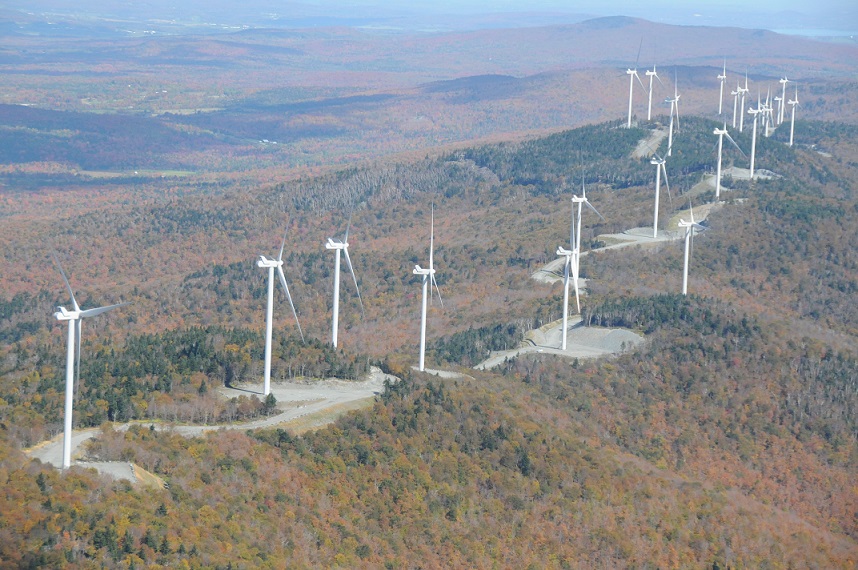by Suzanna Jones / Counterpunch Walden, Vermont– In his 2008 book Deep Economy, Bill McKibben concludes that economic growth is the source of the ecological crises we face today. He explains that when the economy grows larger than necessary to meet our basic needs – when it grows for the sake of growth, automatically striving for “more” – its social and environmental costs greatly outweigh any benefits it may provide.
Unfortunately, McKibben seems to have forgotten what he so passionately argued just five years ago. Today he is an advocate of industrial wind turbines on our ridgelines: he wants to industrialize our last wild spaces to feed the very economy he fingered as the source of our environmental problems.
His key assumption is that industrial wind power displaces the use of coal and oil, and therefore helps limit climate change. But since 2000, wind facilities with a total capacity equivalent to 350 coal-fired power plants have been installed worldwide, and today there are more – not fewer – coal-fired power plants operating. (In Vermont, the sale of Renewable Energy Credits to out-of-state utilities enables them to avoid mandates to reduce their fossil fuel dependency, meaning that there is no net reduction in greenhouse gas emissions.) At best, industrial wind simply adds more energy to the global supply. And what for? More! More energy than the grid can carry, more idiotic water parks, more snowmaking, more electronic gadgets, more money for corporations.
Why should we spend millions of dollars to destroy wildlife habitat, kill bats and eagles, pollute our headwaters, fill valuable wetlands, polarize our communities, make people sick, mine rare earth metals – just to ensure that we can consume as much or more next year than we did this year?
The costs of industrial wind far outweigh the benefits… unless you are a wind developer. Federal production tax credits and other subsidies have fostered a gold rush mentality among wind developers, who have been abetted by political and environmental leaders who want to appear “green” without challenging the underlying causes of our crises. Meanwhile, average Vermonters find themselves without any ability to protect their communities or the ecosystems of which they are part. The goal of an industrial wind moratorium is to stop the gold rush so we can have an honest discussion on these issues. Why does this frighten proponents of big wind? Because once carefully examined, industrial wind will be exposed for the scam that it is.
McKibben’s current attitude towards the environment has been adopted by politicians, corporations, and the big environmental organizations. Environmentalism has been successfully mainstreamed, at the cost of its soul. This co-opted version isn’t about protecting the landbase from the ever-expanding empire of humans. It’s about sustaining the comfort levels we feel entitled to without exhausting the resources required. It is entirely human-centered and hollow, and it serves corporate capitalism well.
In Deep Economy, McKibben points out that the additional “stuff” provided by an ever-growing economy doesn’t leave people happier; instead, the source of authentic happiness is a healthy connection to nature and community. As Vermonters have already discovered, industrial wind destroys both.
What industrial wind represents should be obvious to everyone: this is business-as-usual disguised as concern for the Earth. Far from genuine “environmentalism”, it is the same profit- and growth-driven destruction that is at the root of every ecological crisis we face.
Suzanna Jones is an off-the-grid farmer living in Walden. She was among those arrested protesting the Lowell wind project in 2011.
